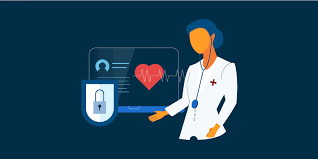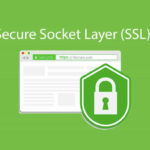As healthcare technology continues to improve, changes are being made to the HIPAA to keep up with compliance standards. New trends in technology have resulted in updates to the regulations including increased encryption security and more automated processes. Additionally, medical devices such as smartwatches that track vital signs now must be required to be HIPAA-compliant meaning they must adhere to specific regulations regarding data protection and information accessibility. In short, with new technological advancements comes an amended version of HIPAA so organizations can keep up-to-date and secure their patient’s medical information.
HIPAA compliance is essential, and organizations need to take the appropriate steps to remain compliant. This is where HIPAA compliance software can be useful. It helps organizations track and protect sensitive health information, ensuring that they meet the national standards set by HIPAA while providing HIPAA authorization form. By utilizing this software, organizations can ensure that their data remains safe and secure from unauthorized access and disclosure. Overall, HIPAA compliance software is a valuable tool for any organization that wants to successfully adhere to the regulations set by HIPAA. In this blog, we will discuss the emerging trends and technologies associated with HIPAA compliance.
Emerging Trends in HIPAA Compliance
As technology continues to evolve, so do the requirements for staying compliant with HIPAA regulations. Here are some of the emerging trends in HIPAA compliance:
- Automation: Automation is becoming increasingly important when it comes to staying compliant with HIPAA regulations. Automating processes such as risk assessments, security reviews, and audits can help organizations save time and money while ensuring they remain compliant with all applicable laws and regulations.
- Cloud Computing: Cloud computing has become an essential part of modern business operations, allowing organizations to store their data securely offsite while still maintaining control over who has access to it. As cloud computing becomes more popular, organizations must ensure they have adequate security measures in place to protect their data from unauthorized access or disclosure. Cloud computing offers a variety of security benefits for PHI (Protected Health Information) data. By using cloud-based solutions, organizations can ensure that their sensitive information is stored securely and protected from unauthorized access. Cloud providers use encryption, authentication, and other security measures to protect data from malicious actors.
- Mobile Devices: Mobile devices are becoming increasingly common in healthcare settings, making it even more important for organizations to ensure they have adequate security measures in place to protect patient data from unauthorized access or disclosure. This includes implementing strong authentication protocols, encrypting data stored on mobile devices, and regularly monitoring mobile device usage for suspicious activity.
Technologies Transforming HIPPA Compliance
In addition to emerging trends, there are also several technologies that are transforming how organizations approach HIPPA compliance:
- Artificial Intelligence (AI): AI can be used by organizations to automate tasks such as risk assessments and audits which can help them save time and money while ensuring they remain compliant with all applicable laws and regulations. AI can also be used by healthcare providers to improve patient care by providing personalized treatment plans based on individual patient needs.
- Blockchain Technology: Blockchain technology is being used by healthcare providers as a secure way of storing patient data while ensuring only authorized personnel to have access to it. This makes it easier for healthcare providers to share patient information between different departments without compromising security or privacy.
- Internet of Things (IoT): IoT devices allow healthcare providers to collect real-time data about patients which can then be used for diagnosis or treatment purposes. However, these devices must be properly secured in order for them not to become vulnerable targets for cyberattacks or unauthorized access/disclosure of sensitive patient information.
Final Thoughts
As technology continues to evolve, so do the requirements for staying compliant with HIPAA regulations. Organizations must stay up-to-date on emerging trends and technologies if they want to remain compliant with all applicable laws and regulations regarding the protection of sensitive patient data from unauthorized access or disclosure. By implementing automation tools such as AI, blockchain technology, and IoT devices into their operations; organizations can ensure they remain compliant while also improving their overall efficiency and effectiveness when it comes to providing quality care for their patients.








